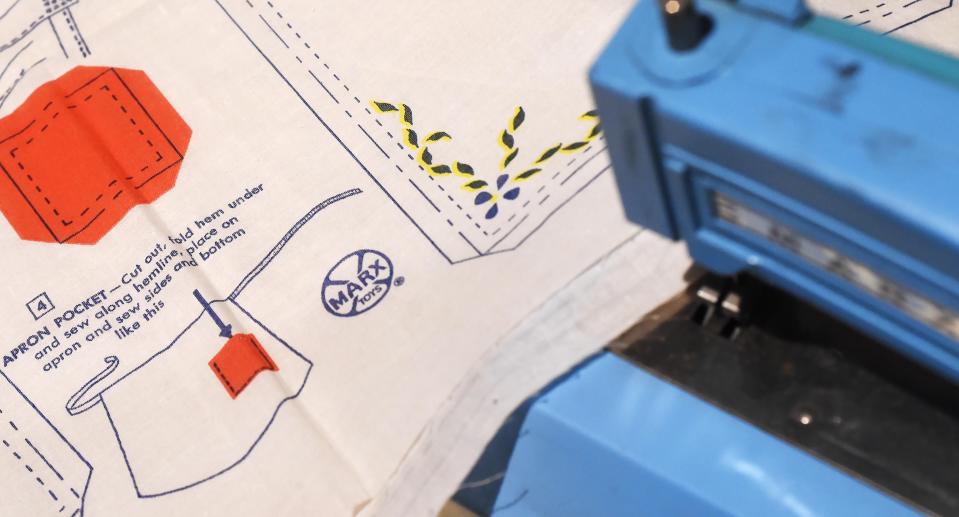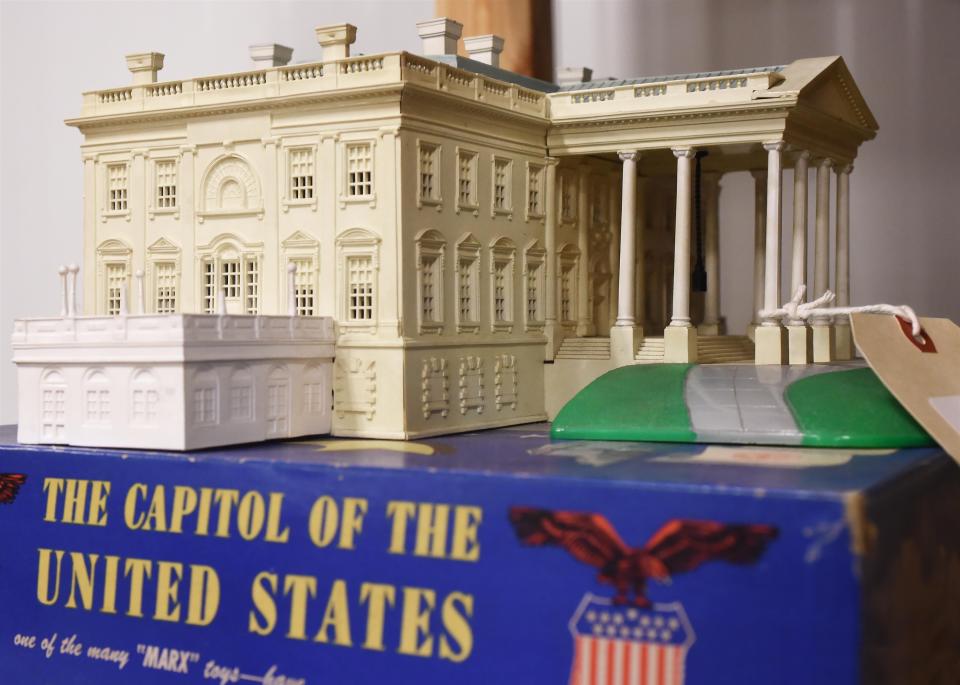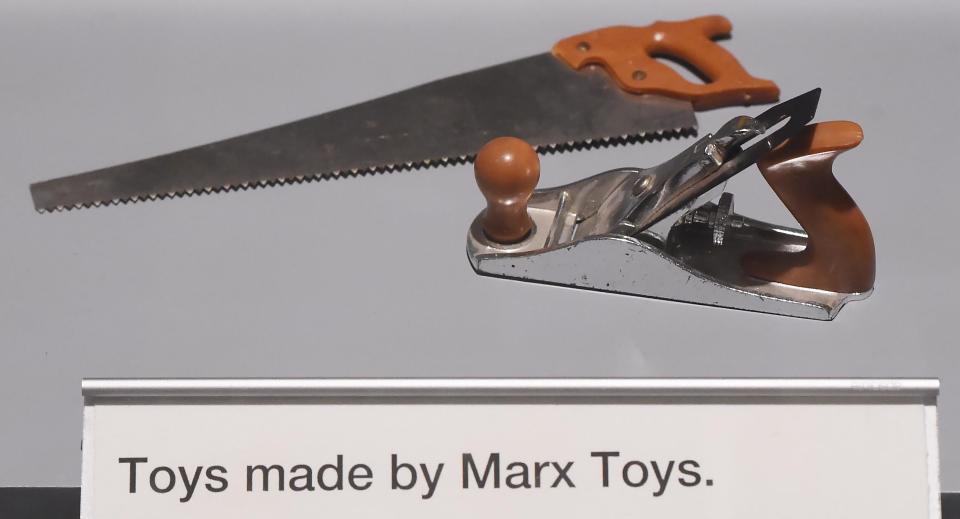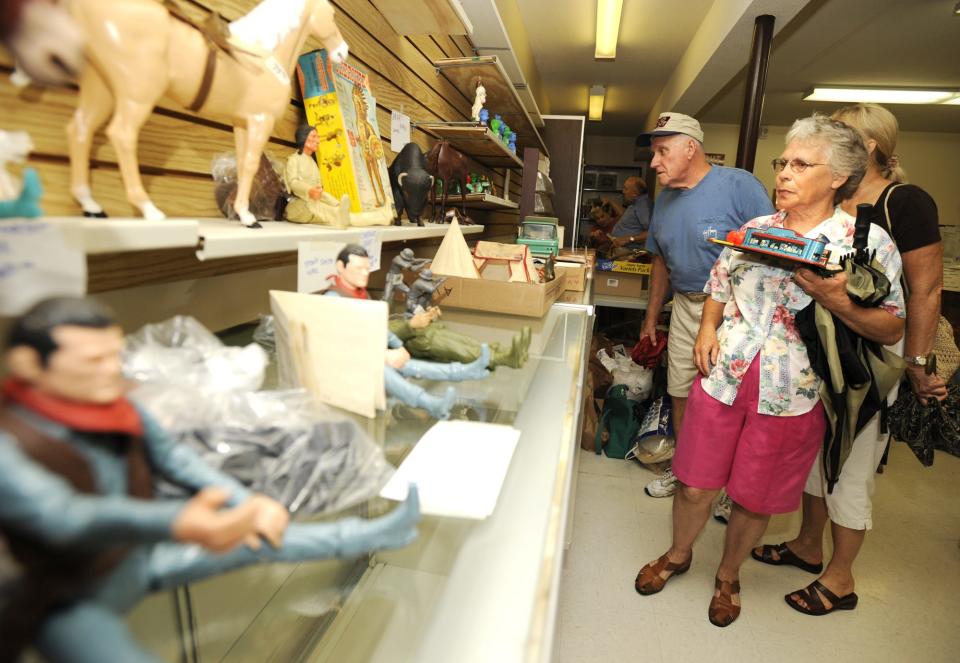The Marx Toys story: Erie and Girard factories made toys for generations of kids worldwide
This is the third in a three-part series about Marx Toys and the people who made them.
Read Part 1: Marx Toys made in Erie were Christmas favorites for more than 50 years
Read Part 2: The toymakers and their 'elves' made memories for children
Marx Toys became a staple of Erie manufacturing not long after its founding by Louis Marx in Brooklyn, New York, in 1919.
Marx had worked for the Ferdinand J. Strauss Company, a toy manufacturer in New York, before launching Louis Marx & Company. He moved most of the company's operations to a newly built factory in Erie eight years later.
"Work of installing the machinery in the new factory building at 19th and Cascade sts., built by the Louis Marx and company, one of the largest operators of mechanical toys, is underway and is expected to be completed within the next week," the Erie Daily Times reported on July 30, 1927.
The plant's first employees came to Erie from Brooklyn, according to the report:
"Many of the workmen are to be brought to this city by the company, a number of them already having arrived here... and (begun) the work of unloading the first car of machinery."

Several Erie businesses and the Girard Model Works, on Hathaway Street East in Girard, had been making toys for Marx before the new plant opened, also according to the Erie Daily Times report:
"The E.C. Carter company and the L.C. Feist company, both of this city, produce the Marx mechanical toys and with the establishment of the die making department of the company here, a clover co-operation with the production units is expected to follow. The Girard Model Works at Girard also produces the Marx toys."
Manufacturing was consolidated at the new plant and at the Girard Model Works, which was was bought and incorporated by Marx in February 1935. Louis Marx had 48 shares of the Girard company. Partners B. Gunnison of Erie and David Marx of New York had one share each, according to the Erie Daily Times.
Marx opened a third factory in Glen Dale, West Virginia, that same decade.
Growth in Erie, Girard and worldwide
By the mid-20th century, the company had factories worldwide and occupied a number of Erie facilities in addition to the 19th and Cascade factory, including a plant at West 18th and Raspberry streets, a credit union at West 20th and Cascade streets, and a warehouse in the old Bucyrus Erie building on West 12th Street, where Dennis Kubiak, now of Dover, Pennsylvania, remembers "miles of racks with Marx toys stacked up to the ceiling... a young child's delight."
Kubiak's father, Bob, was personnel manager at Marx Toys in Erie in the 1950s and 1960s. Kubiak got behind-the-scenes looks at the West 18th and Raspberry plant when he accompanied his father to work some Saturdays when the plant was closed.

"On one of my visits, while Dad cleaned up paperwork, I ventured into the plant a bit, seeing (where) the toys were made by hand at assembly tables, mostly by women," Kubiak said. "Working at Marx wasn't very financially rewarding for Dad, but one of the perks was plenty of toys."
Louis Marx sometimes visited the Erie and Girard plants.
"It was always Lou Marx," Mark Weisman said. "That's what they called him, my grandmother said."
Weisman's grandmother, Agda Weisman, worked at the Erie toy plant in the 1930s and '40s.
"He always had dinky toys in his pockets to hand out to kids," Mark Weisman said.
Quaker Oats bought Marx Toys in 1972 for more than $50 million. The Chicago-based conglomerate also owned Fisher-Price toys.

Stopping production
But Marx Toys struggled, and the company ended production in Erie in December 1975. The decision was announced by plant Manager Bill Keller and reported in the Sept. 5, 1975, Erie Daily Times:
"These plans to discontinue manufacturing in Erie were very reluctantly made after careful studies, which indicated that considerable savings and more efficient operations can be achieved by discontinuing manufacturing at the Erie plant and consolidating all manufacturing at existing Marx plants in Girard and Glen Dale, W. Va.," Keller said.
Sales in fiscal year 1975 were 14% lower than a year prior, and the company operated at a loss in the 1974 calendar year, Marx Toys President Jack Asthalter said.
Of almost 600 workers then employed in Erie, 440 lost their jobs. About 150 research, development and warehousing employees were retained for a time.
The Girard plant operated until January 1980, four years after its purchase from Quaker Oats by the British firm Dundee-Combex. About 1,200 employees were furloughed, most of them seasonal workers hired for the Christmas rush.
Kim Stormer, the plant's manager of production planning and inventory control, was one of a skeleton crew of employees who stayed on to handle the sale of molds and fixtures and necessary paperwork.
"I was the second-to-last person to leave the building," Stormer said.

Remembering the Marx legacy
The Marx Toys legacy lived on in the Marx Toys Museum on Bloomfield Parkway in Summit Township from 2000 until 2008, when a lack of funding and volunteers forced its closing.
The museum had been founded and operated by former Marx employees, collectors and local historians.
"We wanted to entice people back to a safer place in their lives, back to their childhood," the late Betty Portenier, the museum's co-founder, said in 2000. "Toys always instill in people a nostalgia for the past and remind them of happier times."
Erie's Hagen History Center has more than 300 reminders of happier times for Marx Toys. A dozen of its best Marx Toys are included in the permanent exhibit, "The Story of Us."
Showcasing Erie's immigrant roots: Hagen History Center's 'The Story of Us' exhibit
Contact Valerie Myers at vmyers@timesnews.com.
This article originally appeared on Erie Times-News: The Marx Toys story: Generations of Erie and Girard workers made toys

